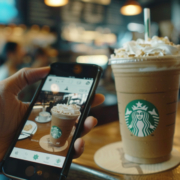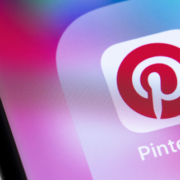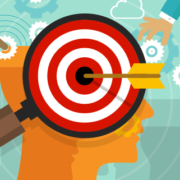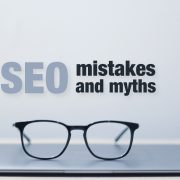Are You Getting the Most Out of AI in Your Marketing Strategies?
In today’s ever-evolving digital landscape, staying ahead of the curve means having a firm grasp on artificial intelligence (AI). What about AI in marketing? Marketing teams leverage AI by using it to run effective campaigns, gain powerful insights into customer behavior, personalize campaigns based on spending habits, and improve results.
Generative AI can even be integrated into content marketing efforts to get you a competitive advantage in an overcrowded market. Take a deep dive into different use cases for AI in marketing initiatives.
Crash Course on How Artificial Intelligence Works
AI marketing is a game-changer in the world of marketing. It utilizes predictive analytics, machine learning, natural language processing, and bots to understand and evaluate customer behavior. AI for marketing helps businesses tailor their marketing strategies to each customer’s preferences, allowing for more personalized interactions.
AI can analyze vast datasets and provide insights into what products or services a customer might be interested in.
AI Chatbots
AI-powered chatbots are a customer experience gold mine! By using AI chatbots, visitors can get answers to their questions without a customer support employee breaking their workflow to address immediate needs. AI chatbots can answer simple questions, collect information to make customer support easier, and help visitors through the customer journey.
Deploying this AI marketing tool helps businesses keep up with their customers’ needs in real-time, leading to increased customer satisfaction and, ultimately, increased revenue.
Two Popular Parts of AI Technology
AI technology can be broken down into two main parts: machine learning and deep learning.
Machine Learning
When computers can “learn” and “adapt” without following instructions, that’s called machine learning. It uses broad algorithm analysis for data-driven decision-making.
Machine learning leverages historical data to make predictions on customer behavior. Then, customer behavior is analyzed, leading to recommendations and programmatic ads. These are all examples of machine learning.
Deep Learning
Deep learning takes machine learning a step further, using unstructured data like image or speech recognition. It’s done by layering algorithms and creating a network where the AI can make decisions on its own (kind of like how the human brain works).
Think of it as a deep dive into algorithms; massive amounts of data are analyzed in deep learning to perform actions.
In marketing, deep learning is used for image and video recognition, chatbots and virtual assistants, and personalization and recommendation systems.
Benefits of Using AI in Your Marketing Strategy
There’s never enough time, right? Well, one of AI’s most welcomed impacts is how much it’s increased efficiency in the marketing industry.
You can admit it – you don’t like doing the same tasks over and over. Who does? AI.
Businesses are constantly searching for innovative ways to streamline operations and increase efficiency. Honestly, who isn’t? Enter the use of AI technology into your marketing strategy. Allow us, digital marketing professionals, to explain.
With the ability to automate tasks like data analysis and customer segmentation, AI marketing tools can speed up the process of developing and executing effective digital marketing campaigns. By taking advantage of these benefits, businesses can gain a competitive edge and connect with their target audience in a more personalized and meaningful way.
Customer Insights
Analytics powered by AI and machine-learning algorithms can help provide accurate insight into customer data, including behavior, preferences, and purchasing patterns. This information can help you create a targeted and more personalized marketing campaign with data collection.
Targeting and Segmentation
AI algorithms can study extensive data to identify and segment audiences based on various parameters like geography or demographics. As a marketer, you can target exactly who you want and improve your campaign’s effectiveness.
Content Creation
Did you know that AI helped write this blog? AI can create ad copy, social media posts, blogs, and email subject lines. That’s right; content generation just got easier!
However, AI isn’t perfect — yet! You still need a human to fact-check what AI puts out, and, in many cases, add that human touch. AI is a great addition to your toolkit, but don’t let it loose just yet. Most people don’t let influencers post on their behalf without reviewing their content, and AI content generation should be treated the same way.
Running an Efficient Campaign
AI technology can help you make the most of your time by performing repetitive tasks or the pesky ones that just take up a lot of time (data analysis, campaign optimization, content creation).
Is There Anything Bad About AI?
Of course, there are disadvantages to using AI.
The most obvious con to AI is that there’s no human-like quality to it a lot of the time. How often have you tried getting ahold of your favorite brand on social media, and a chatbot opens? Chatbots are great in helping to direct consumers to find a solution, but it’s frustrating when you want to actually talk to someone and not get bombarded with marketing messages.
No Emotion
While AI uses algorithms to create a response, emotions aren’t always conveyed in outputs. AI can struggle to understand emotions, cultural nuances, and individual preferences that make marketing effective.
AI Isn’t Always Predictable
AI is supposed to craft a predictable response, but it’s not guaranteed. The marketing industry constantly evolves, and AI doesn’t always catch the latest trends. Unpredictability leads to errors, biases, or unexpected outcomes that could potentially harm your brand.
A (Lacking) Sense of Security
With AI, there’s concern about data privacy and security. For starters, AI can monitor individuals by tracking movements, monitoring social media activity, and analyzing facial expressions. If your audience starts to get creeped out by the accuracy provided by AI, you could potentially risk your customer retention.
Costs
Especially if you’re a startup or small business, AI in marketing can get costly pretty quickly. That’s why it’s important to get familiar with different examples of AI. Once you nail down what AI for marketing you like, you can commit and fit it into your budget where you need it (when you’re ready to go beyond free trials).
Examples of AI Platforms
AI is everywhere. Amazon offers Alexa and the Echo Dot, while Google has Google Home.
If you’re ready to make your marketing job easier, look at the following AI platforms.
ChatGPT
Over the last year, this chatbot has taken the world by storm. Developed by OpenAI, ChatGPT creates content in a conversational tone. It’s based on statistical patterns, meaning it doesn’t “think” like a human.
ChatGPT has quick response times, and its output sounds fairly human. The free version really fits nicely into the budget, too. That doesn’t mean there aren’t cons. Users have reported that ChatGPT gives irrelevant or completely wrong responses.
Grammarly
Both free and paid subscriptions are available for this spelling- and grammar-based platform. While a lot of people swear by Grammarly, it’s not perfect. It doesn’t catch every grammar mistake, and its suggestions aren’t always accurate.
Google Analytics
Google Analytics marries machine learning and AI algorithms to show patterns and predict user behavior. Check metrics and conversion rate tracking with Google Analytics, too.
When setting the account up, it can get confusing. This can cause user error, leading to incorrect reporting and essentially making Google Analytics useless.
HubSpot
A lot of marketing professionals use HubSpot CRM. It has email marketing optimization, predictive lead scoring, customer engagement, chatbot integration, and more.
ChatSpot, HubSpot’s version of ChatGPT, is free for everyone, but it doesn’t always “understand” your commands. HubSpot is a fantastic resource (once you get past the price tag), but luckily, it has a lot of free components, and its AI is part of that perk.
PPC and AI Together
When we say AI can be used throughout your marketing strategy, we mean it.
Using AI in your PPC campaigns can lead to better campaign performance, ad relevance, and automated optimization. How? Keep reading.
- AI algorithms can look at tons of data, automatically adjusting bids.
- Ad copy can be optimized through A/B testing, looking at headlines and descriptions.
- AI algorithms analyze timing and tell you the best channels, sites, or times. It can also just automatically place the ads for you.
- Analytics powered by AI monitor campaigns in real-time and give insights. Trends can be identified and recommended so your campaign works as best as possible.
AI and the Marketer’s Job
Anytime automation and applications of AI are used in the workplace, there’s always talk about people being replaced. We have great news.
AI isn’t “smart” like a human. It doesn’t understand emotion, which you need to convey in marketing. Think of AI as a starting point, whether that’s creating an outline for an SEO blog or pulling metrics. You still need to proofread for grammar and fact-check everything. We know – we’re sounding like a broken record at this point. That’s because it’s important to review AI’s content generation.
There could even be a plagiarism concern. It would be embarrassing to take AI outputs as wholly correct, only to find out it was lifted from another site it found through its search engine. There goes your brand’s credibility.
There’s no reason to be scared of AI in marketing, as long as you’re using it right and not relying on it too much.











